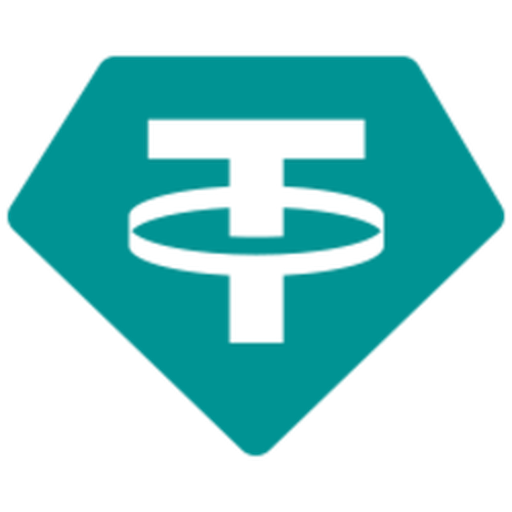Tether vs Decentralized Social – Price, Market Cap & Performance Compared
Which coin performs better – Tether or Decentralized Social?
We compare the current price (1 $ vs 6.67 $), market cap (173 087 463 220 vs 73 791 913) and all-time high (1.32 vs 198.68).
Find out which one stands out right now!
Tether is currently trading at 1 $, while Decentralized Social stands at 6.67 $. These cryptocurrencies differ not only in price but also in market presence.
The market cap of Tether is around 173 087 463 220, and Decentralized Social has about 73 791 913. Their respective all-time highs are 1.32 for Tether and 198.68 for Decentralized Social.
Daily trading volume and the 24h price change (-0.00189 % vs -2.32843 %) also offer key insights.
Compare all metrics now and see which coin fits your investment strategy best!
Tether
Tether is a widely-used stablecoin in the cryptocurrency market, designed to maintain a value equivalent to a traditional currency like the US dollar. It provides traders and investors with a stable asset to navigate the volatile crypto landscape, offering a flexible means to move funds quickly between exchanges. Despite its popularity, Tether has faced scrutiny regarding its reserve holdings and transparency, sparking ongoing debates within the financial community.
more informationDecentralized Social
Decentralized Social emerges as a significant player in the landscape of blockchain technology, focusing on empowering users through a community-driven approach. By enabling seamless content sharing and interaction without centralized control, it champions privacy and freedom of expression. As the demand for decentralized platforms grows, Decentralized Social positions itself as a promising solution for users seeking autonomy in the digital space.
more information

|

|
|
|
|
General Information |
|
|---|---|
|
Title
Tether
|
Title
Decentralized Social
|
|
Symbol
usdt
|
Symbol
deso
|
|
Whitepaper
|
Whitepaper
|
|
Website
|
Website
|
|
Community
-
|
Community
|
|
Last Updated
2025-09-24 23:29
|
Last Updated
2025-04-12 13:29
|
Price Data |
|
|---|---|
|
Current Price $
1 $
|
Current Price $
6.67 $
|
|
High 24h
1 $
|
High 24h
7.79 $
|
|
Low 24h
1 $
|
Low 24h
6.29 $
|
|
Price Change 24h
-0.00002 $
|
Price Change 24h
-0.15892 $
|
|
Price Change % 24h
-0.00189 %
|
Price Change % 24h
-2.32843 %
|
Market Data |
|
|---|---|
|
Market Cap
173 087 463 220
|
Market Cap
73 791 913
|
|
Total Volume
95 616 120 249
|
Total Volume
1 358 257
|
|
Market Cap Change 24h
288 328 065
|
Market Cap Change 24h
1 633 798
|
|
Market Cap Change % 24h
0.16686 %
|
Market Cap Change % 24h
2.26419 %
|
|
Return on Investment (ROI)
-
|
Return on Investment (ROI)
-
|
Supply and Availability |
|
|---|---|
|
Circulating Supply
173 039 417 063
|
Circulating Supply
10 532 254
|
|
Total Supply
173 039 417 063
|
Total Supply
10 808 493
|
|
Max Supply
-
|
Max Supply
10 808 493
|
Historical Data |
|
|---|---|
|
All Time High (ATH)
1.32
|
All Time High (ATH)
198.68
|
|
ATH Change %
-24.39867 %
|
ATH Change %
-96.08473 %
|
|
ATH Date
2018-07-24 00:00
|
ATH Date
2021-06-19 20:53
|
|
All Time Low (ATL)
0.57252
|
All Time Low (ATL)
2.7
|
|
ATL Change %
74.71457 %
|
ATL Change %
188.1743 %
|
|
ATL Date
2015-03-02 00:00
|
ATL Date
2024-11-05 13:22
|
Tether
Understanding Tether: A Stablecoin Powerhouse
Tether (USDT) is a leading name in the world of stablecoins, a class of cryptocurrency designed to facilitate transactions by maintaining a stable value. Unlike volatile cryptocurrencies like Bitcoin or Ethereum, stablecoins like Tether aim to provide users with the stability of fiat currency, while still leveraging the benefits of blockchain technology.
The Mechanism Behind Tether's Stability
Tether achieves its stability by pegging its value to traditional fiat currencies, primarily the U.S. Dollar. Each Tether token is reportedly backed by an equivalent amount of fiat currency held in reserve. This 1:1 backing mechanism is key to maintaining the coin's stable value, as reflected in its market price which typically hovers around 1 USD.
Historical Development and Milestones
Tether's inception dates back to 2014, and since then, it has played a pivotal role in demonstrating the practical use case of stablecoins within the crypto ecosystem. Its journey has seen significant milestones, including reaching its all-time high of $1.32 in July 2018, and experiencing its low at $0.572521 in March 2015. These deviations, while noteworthy, are rare occurrences in Tether's overall history, underscoring its primary objective of price stability.
Advantages of Using Tether
The primary advantage of Tether is its stability, making it a safe harbor for investors during times of high volatility in the broader cryptocurrency market. By offering price predictability, it facilitates more efficient trading, lending, and arbitrage, making it an indispensable tool for crypto exchanges and users alike. Moreover, Tether's utility is further enhanced by its widespread acceptance and high liquidity.
Challenges and Controversies
Despite its widespread use, Tether has faced scrutiny regarding its claims of full fiat backing. Critics have raised concerns about transparency, regulatory challenges, and the adequacy of its audited reserves. These issues have occasionally prompted regulatory attention and calls for greater transparency and accountability from Tether’s management.
Future Outlook for Tether
The future of Tether rests heavily on its ability to maintain trust and transparency with users and regulators alike. As the crypto market matures, Tether is expected to continue playing a significant role, particularly if it can navigate the evolving regulatory landscape successfully. Its position as a stablecoin market leader suggests that it will remain a cornerstone in crypto trading, offering a reliable alternative to more volatile assets.
In conclusion, Tether stands out as a critical tool within the cryptocurrency space, providing much-needed stability for traders and businesses. Its ongoing relevance will depend on its adaptability to regulatory demands and its continued assurance of transparency and full reserve backing to its user base.
Decentralized Social
Exploring Decentralized Social (DeSo): The Future of Social Media on the Blockchain
Decentralized Social, commonly known by its symbol DeSo, is emerging as a noteworthy player in the cryptocurrency landscape, particularly in the realm of decentralized social media. Launched with the mission of creating a more open and user-controlled social media environment, DeSo aims to tackle the challenges posed by centralized platforms. This article delves into the intricacies of DeSo, examining its historical performance, advantages and disadvantages, and future prospects.
Historical Performance and Market Overview
Since its inception, DeSo has experienced considerable volatility. The coin reached an all-time high (ATH) of $198.68 on June 19, 2021, capturing the attention of investors and social media enthusiasts alike. However, it subsequently fell dramatically, reflecting a common pattern seen in many cryptocurrencies, especially during bear markets. As of December 2023, DeSo is trading at approximately $12.90, a staggering decline of over 93% from its ATH. Despite this downturn, it showcases resilience with an all-time low (ATL) of $2.70 recorded in November 2024, representing a substantial recovery phase with a change of 378.72% since that low.
Advantages of DeSo
One of the primary advantages of Decentralized Social lies in its commitment to user sovereignty. By leveraging blockchain technology, DeSo enables users to own their data and content, promoting transparency and eliminating the privacy issues prevalent in traditional social media. Additionally, its decentralized nature minimizes the risks of censorship and manipulation by single entities, fostering a more varied and genuine discourse.
Moreover, DeSo's innovative tokenomics encourages community participation and incentivizes content creation. Users can earn rewards for engaging with the platform, thus potentially enhancing user loyalty and fostering a sustainable ecosystem. The substantial engagement on platforms like TikTok, which boasts a DeSo community presence, indicates increasing interest in decentralized solutions for social networking.
Disadvantages and Challenges
Additionally, the coin’s market performance has been markedly influenced by the broader crypto market dynamics, often experiencing significant downturns. Regulatory uncertainties also loom large over decentralized platforms, where compliance with varying global regulations remains a pressing concern.
Future Prospects of Decentralized Social
The future of Decentralized Social appears promising yet cautious. As societal awareness of data privacy and censorship issues grows, the demand for decentralized solutions may rise accordingly. If DeSo can effectively communicate its value proposition and engage with potential users, it stands a chance of carving out a significant niche within the social media ecosystem.
Furthermore, potential technological advancements and partnerships could enhance its functionality and user experience, setting it apart from competitors. As the project continues to evolve, the ongoing development of its ecosystem, as outlined in its whitepaper, will be instrumental in defining its trajectory over the coming years.
Conclusion
In summary, Decentralized Social represents an innovative approach to social networking through blockchain technology. While it faces significant challenges in terms of competition and market volatility, its unique advantages position it as a compelling alternative for users seeking more control over their social interactions. As the landscape evolves, DeSo's ongoing development and the broader adoption of decentralized solutions will ultimately determine its success and longevity in the cryptocurrency world.

